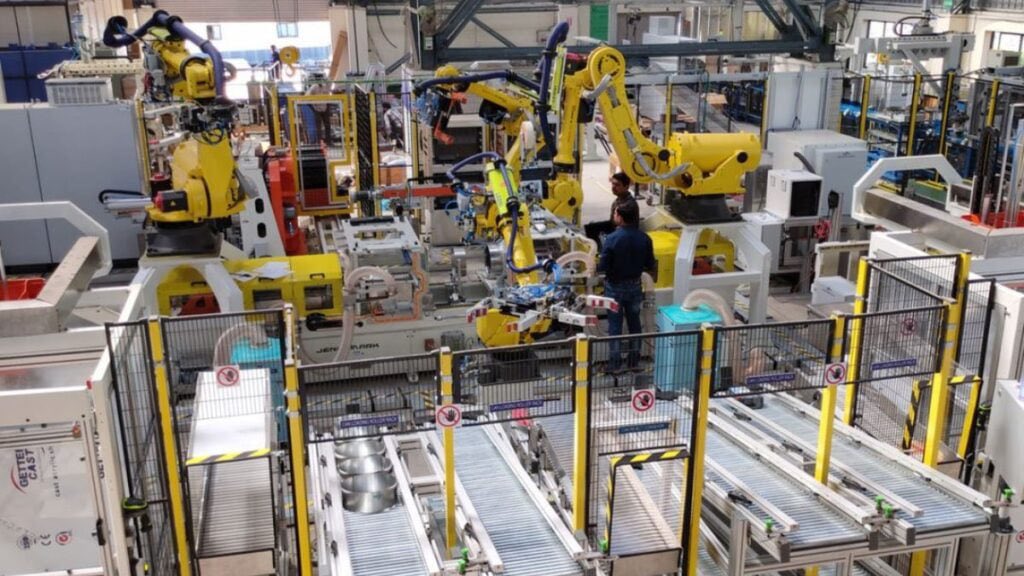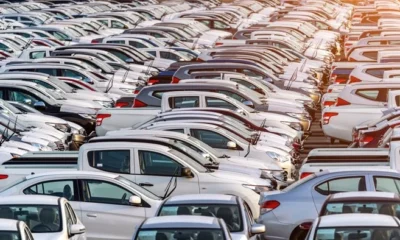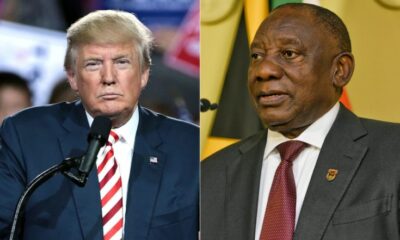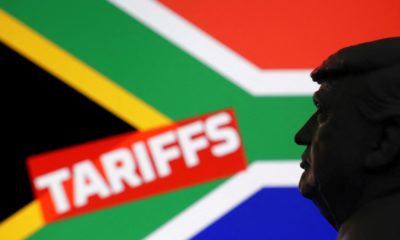News
From Boom to Bust: How Trump’s New Tariffs Crushed a South African Manufacturer Overnight

Gqeberha’s Jendamark Automation just lost R750 million in future business. Now, thousands of livelihoods hang in the balance.
The Shock No One Saw Coming
“It’s just gone.”
Those were the words of Siegfried Lokotsch, managing director of Jendamark Automation, when he had to inform his board that R750 million in pending contracts with US clients had simply vanished overnight.
Based in the industrial heart of Gqeberha, this high-tech South African firm designs cutting-edge automated assembly lines for global auto giants like Ford, BMW, Volkswagen and Mercedes-Benz. It’s one of the Eastern Cape’s industrial pride points, a rare success story of South African engineering on the global stage.
But last week, former US President Donald Trump reimposed a 30% tariff on dozens of countries, including South Africa, as part of a sweeping push to “put America first” in trade again. Overnight, Jendamark’s products became a third more expensive in the US market.
For a business built on export competitiveness, that’s a death blow.
A Ripple Through the Bay
The impact stretches far beyond Jendamark’s 500 employees. Lokotsch estimates around 3,000 workers across the company’s local supplier chain could be affected.
And that’s just one company.
Denise van Huyssteen, CEO of the Nelson Mandela Bay Business Chamber, says the blow is being felt across the region. “The Eastern Cape economy is likely to be the most adversely affected in the country by these developments,” she warned.
This region isn’t just home to a few car parts companies, it’s the nucleus of South Africa’s automotive manufacturing sector. From Port Elizabeth to Uitenhage, thousands of jobs are directly tied to Original Equipment Manufacturers (OEMs) and the web of component suppliers that orbit them.
According to Van Huyssteen, around 40% of South Africa’s entire automotive workforce is based in the Eastern Cape. If the US tariffs persist, she said, “we’re not just talking about company losses, we’re talking about a potential jobs bloodbath.”
Why South Africa Was Targeted
South Africa has recently leaned more openly toward its BRICS partners, China, Russia, Brazil, and India—at a time when the US is looking to rebalance trade away from rival blocs.
Trump’s administration has now made it clear: any economy aligning too closely with BRICS may face economic consequences.
He’s also reportedly considering a further 10% tariff on BRICS nations in what analysts have dubbed a “new trade war for a multipolar world.”
This is not the first time South Africa’s balancing act between Western trade and BRICS diplomacy has caused friction. But this time, the stakes are tangible.
The Bigger Picture: Global Trade in Flux
Van Huyssteen pointed out that the global trade system has been “upended.” Longstanding relationships, built over decades are now subject to sudden political whims.
Multinational corporations are watching carefully. If manufacturing in South Africa becomes less economically viable due to trade penalties, some may relocate operations.
For a country already grappling with high unemployment and low investor confidence, that’s an outcome it can’t afford.
Government’s Plea for a Lifeline
President Cyril Ramaphosa is trying to buy time. Speaking to reporters last week, he confirmed that the US granted South Africa a one-week delay before implementation of the full tariffs. The hope is to use that window to “negotiate as strongly and as hard as we can” to soften or avoid the blow.
Behind closed doors, South Africa is offering several sweeteners: importing more US agricultural products, investing in American mining and recycling ventures, and partnering in strategic sectors like pharmaceuticals and agri-machinery.
Whether it will be enough remains to be seen.
Local Reaction: Anger, Anxiety, and Resilience
On South African social media, reactions have been swift and emotional.
“South African exporters just became collateral damage in Trump’s 2024 campaign,” one user posted on X (formerly Twitter).
“Why are we paying the price for global power plays?” asked another.
But amid the outrage, there’s also a thread of resilience. Gqeberha locals have been through economic storms before, from GM’s exit in 2017 to Covid-19 disruptions. There’s hope that regional leaders and national government will find ways to pivot, diversify, and protect core industries.
For now, though, workers at Jendamark and other Eastern Cape manufacturers are left waiting, hoping this isn’t the start of a bigger unraveling.
Trump’s 30% tariff has already cost a key Eastern Cape exporter R750 million and placed thousands of jobs in jeopardy. The broader concern is that South Africa’s automotive heartland may take a permanent knock if trade negotiations fail. As the government scrambles for solutions, local industries brace for a rough road ahead.
This isn’t just about Trump or tariffs. It’s about South Africa finding its place in a fast-shifting global economy and whether we’ll be given the space to grow, or squeezed out by geopolitics.
{Source: The Citizen}
Follow Joburg ETC on Facebook, Twitter , TikTok and Instagram
For more News in Johannesburg, visit joburgetc.com



























